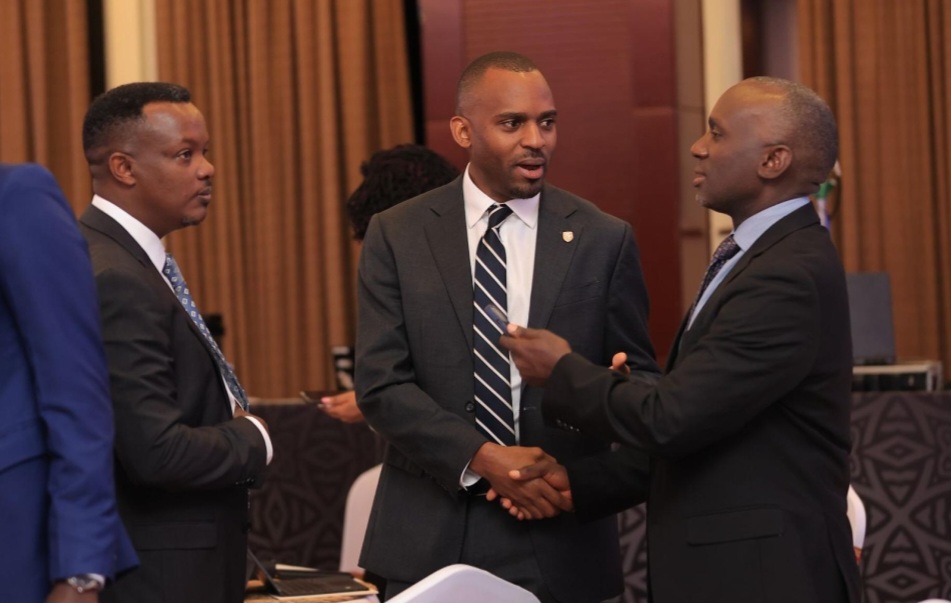Africa Can Leverage Local Resources To Develop Communities A Nigerian energy and extractives industry investor,Dr. Fatona Fatona, has urged leaders in Africa to use the abundant natural resources to develop their communities.
Fatana, the Chief Executive Officer of Niger Delta Petroleum Resources, said if African resources and savings were invested locally, the benefits would stay with the people.
“The money is here. The skills are here. We just need confidence in ourselves,” he said.
He was delivering a keynote address at the opening of the 3rd East Africa Business Summit 2025 in Kampala.The summit, hosted by Stanbic Bank under the theme “Connected & Resilient -Scaling East Africa’s Regional Advantage,”
The two-day summit, attended by over 200 delegates, is being used as a strategic platform to explore how East Africa can deepen its connectivity, scale its resilience, and lead the continent into a new era of economic collaboration.
Dr. Fatana delivered a keynote on “Outside in – investing East of the Rift”. He said resources within the continent could mean new power plants that lower electricity costs, highways that cut transport time, and industries that employ young people.
He called for local pension funds, savings, and investments to finance infrastructure and energy projects, a point that drew wide support. He also called for wider integration and intra-regional trade.
“When a farmer in Uganda can sell maize in Rwanda, or when a young coder in Nairobi can work with partners in Juba, that’s when integration becomes real,” Fatona noted.
According to Fotana, Challenges remain. Non-tariff barriers, protectionist policies, and infrastructure gaps continue to slow progress. Patrick Mweheire, Standard Bank for East Africa Group, said East Africa is on the cusp of extraordinary growth.
“With a young population, vast natural resources, fertile soils, and deepening integration, this region has all the ingredients to become a global growth engine. But growth will not happen by accident — it will require collaborative leadership, deliberate investment, and bold action to navigate challenges like youth unemployment, access to affordable credit, and climate change,” said Mweheire, outgoing Regional Chief Executive for East Africa, Standard Bank Group.
“To scale East Africa, governments, banks, and businesses must sit in the same room. When we put the right people together, everything becomes achievable,” he said.
Mweheire cited the East African Crude Oil Pipeline project as proof that collaboration works. It required policy adjustments, fiscal reforms in Tanzania, and coordination across borders. Once leaders worked together, the project succeeded. “That’s what we need more of. Public and private sectors are partners in the same mission,” he emphasized.
East Africa’s intra-trade is now worth around $9 billion, growing nearly twice as fast as GDP. “Trade drives GDP, not the other way around,”
Mweheire said. “When traders, SMEs, and women are part of that value chain, our economies become more resilient,” Mweheire.
The summit agreed that integration must go beyond speeches to real economic participation. Many business leaders called for faster harmonization of border procedures, customs systems, and digital payments to make trade seamless.
Mumba Kalifungwa, Chief Executive of Stanbic Bank Uganda, said the summit comes at a defining moment for our region.
“Uganda, once considered landlocked, is fast transforming into a land-linked economy — investing in infrastructure, trade facilitation, and connectivity that allow goods, services, and opportunities to move seamlessly across borders. As the region integrates, Stanbic’s role is to ensure that when businesses bank with us in Uganda, they are banking across East Africa — with the support and reach to grow into new markets.
“If we can simplify payments, reduce borrowing costs, and expand digital banking, we can make integration something people actually feel,” he said.
Stanbic and its parent, Standard Bank Group, have committed billions of dollars to East African projects. “We share large deals across the group if one bank alone cannot handle them,” he explained.
He underscored that the approach enables transformative projects in energy, infrastructure, and oil. The bank helped raise $3.5 billion for the East African Crude Oil Pipeline, demonstrating investor confidence in Uganda.
Mweheire admitted that SMEs remain underserved. “We’ve been strong with multinationals, but SME lending has lagged. We are redesigning processes to make local businesses bankable, he noted.
“Supporting governments is important, but lending to people who create jobs is safer and more sustainable.”
Launched in 2023, the Stanbic East Africa Business Summit has grown threefold in scale and influence, with previous editions held in Kenya and Tanzania.
This year’s event marks the first hosted in Uganda, coinciding with the transition of regional leadership as Dr. Joshua Oigara assumes the role of Regional Chief Executive for East Africa. “The East Africa Business Summit is a powerful reflection of our region’s shared ambition to build a connected and competitive economy,” said Dr Oigara.
“At Standard Bank, we see our role as enabling this transformation by financing trade, fostering innovation, and supporting enterprises to scale across borders. Through collaboration and investment, we can unlock the full potential of East Africa and drive inclusive, sustainable growth for generations to come.”

